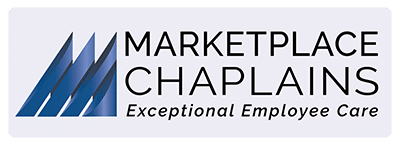How Chaplains Help Navigate Personal Crises Without Disrupting Workflows
Summary
“How Chaplains Help Navigate Personal Crises” asserts that personal crises (like grief, divorce, or financial burdens) inevitably affect job performance, leading to declining productivity and increased turnover. Workplace chaplains serve as a safe, confidential resource for employees to process these emotional and spiritual struggles without fear of judgment. By offering holistic, flexible support during breaks or on-site visits, chaplains function as a “pressure valve” that stabilizes employees quickly, preventing personal issues from escalating into major workflow disruptions. Their presence relieves managers and HR, strengthens organizational trust, and ultimately creates a more resilient workforce.Highlights
- Confidential Resource: Chaplains offer a nonjudgmental, confidential space, which encourages employees to share personal issues and release emotional burdens that would otherwise distract them at work.
- Preventive Power: By building regular relationships, chaplains notice early signs of distress (like withdrawal or burnout) and intervene proactively, preventing personal crises from erupting into workplace problems.
- Holistic Guidance: Care is customized and includes emotional, spiritual (if desired), and practical support, such as referring employees to financial advisors or mental health professionals.
- Workflow Balance: Chaplains integrate seamlessly by offering flexible support during breaks or in quick sessions, ensuring employees get help without extended time away from their responsibilities.
- Manager Support: Chaplains relieve the emotional burden on managers and HR, who can refer employees to specialized care while focusing on their core operational and compliance duties.
- Organizational Resilience: The chaplain’s role strengthens the company culture, boosting morale and trust, which results in a more stable and productive team even when individuals face difficulty.

Workplaces today are more than just environments where tasks get done. They’re communities filled with people who bring not only their skills and talents to the job but also their personal struggles, triumphs, and challenges. When personal crises strike, whether it’s the loss of a loved one, marital struggles, financial burdens, or mental health challenges, the effects inevitably spill into the workplace. Productivity can waver, morale can decline, and the overall work environment may be impacted.
This is where workplace chaplains come in. Professional chaplains are uniquely positioned to walk alongside employees during difficult times, offering confidential, compassionate support. What makes chaplaincy particularly valuable in the modern workplace is its ability to help employees navigate crises without derailing workflows or interrupting business operations. Let’s explore how chaplains accomplish this delicate balance.
The Invisible Weight of Personal Crises in the Workplace
Personal crises don’t wait until after work hours to show up. When employees face major life challenges, the effects often manifest at work. An employee going through a divorce might be distracted and less focused. A parent worried about a child’s illness may feel overwhelmed. Someone struggling with grief may experience fatigue or withdrawal.
Unaddressed, these situations can lead to:
- Declining productivity: Focus shifts away from work tasks, leading to mistakes or reduced efficiency.
- Increased absenteeism: Stress-related illnesses and the need for time away often increase.
- Workplace tension: Emotional strain can affect relationships with colleagues.
- Turnover risks: Employees under unrelenting stress may consider leaving.
While managers and HR departments may try to provide support, employees often hesitate to share personal details with their supervisors. They fear being judged, misunderstood, or seen as less capable. Chaplains provide a safe, trusted outlet that doesn’t carry those risks.
Chaplains as a Safe, Confidential Resource
One of the most important roles of a workplace chaplain is to provide confidential, nonjudgmental support. Employees know they can talk openly with chaplains about personal struggles without fear of repercussion. This is vital because confidentiality builds trust, and trust allows employees to release emotional burdens that would otherwise distract them at work.
Unlike traditional counseling, chaplain visits are often informal. They may take place during breaks, lunch hours, or quick walk-and-talk sessions. These interactions allow employees to express their concerns, process emotions, and receive encouragement, all without stepping away from their work responsibilities for extended periods.
By serving as a pressure valve, chaplains reduce the risk of crises boiling over and affecting workplace performance. Employees can return to their desks with clearer minds, steadier emotions, and renewed focus.
Addressing the Whole Person: Emotional, Spiritual, and Practical Support
A chaplain’s care is holistic. While they are trained in spiritual support, their role isn’t confined to religious contexts. Instead, chaplains provide emotional, spiritual, and practical guidance, tailored to the employee’s background, beliefs, and needs.
- Emotional support: Helping employees process grief, anxiety, or relational conflict.
- Spiritual encouragement: Offering prayer or faith-based support if desired by the employee.
- Practical resources: Referring employees to financial advisors, mental health professionals, or community services when challenges extend beyond the chaplain’s scope.
This whole-person approach ensures employees feel seen and supported, which directly contributes to better engagement and focus at work. When someone feels cared for, they are more likely to re-engage with their tasks and responsibilities rather than being consumed by their difficulties.
The Preventive Power of Chaplaincy
Another critical benefit of chaplaincy is its preventive impact. By maintaining regular, friendly contact with employees, chaplains often notice early signs of distress. Instead of waiting until a personal crisis erupts into a workplace problem, chaplains provide timely intervention.
For example:
- A chaplain might notice an employee withdrawing and open a conversation that uncovers early signs of depression.
- They might identify marital stress before it escalates into absenteeism.
- They might connect someone to grief resources before their productivity plummets.
This proactive care helps employees stabilize sooner, reducing the chances of extended disruptions at work. It’s not about eliminating problems; life will always bring challenges, but about catching them early enough to prevent them from overwhelming an employee’s ability to work.
Chaplains and Workflow Balance
One of the most common concerns business leaders have about introducing chaplains into the workplace is whether it will disrupt workflows. The opposite tends to be true. Chaplains are trained to integrate seamlessly into the work environment without causing interruptions.
Here’s how they maintain balance:
- Flexible availability: Chaplains meet employees on their terms, often during breaks or at times that don’t interfere with productivity.
- Nonintrusive presence: They make themselves visible but never force conversations. Employees initiate when they feel ready.
- On-site visits and virtual access: Chaplains can provide both in-person and remote support, ensuring minimal disruption to schedules.
By offering care in this discreet, flexible way, chaplains ensure employees get the help they need without sacrificing work responsibilities.
Supporting Managers and HR
Managers and HR professionals often face immense pressure when employees experience crises. They want to help but may feel ill-equipped to handle deeply personal or sensitive issues. Chaplains relieve this burden by stepping in as specialized resources.
For example:
- Managers can refer employees to chaplains instead of trying to provide emotional support themselves.
- HR teams can rely on chaplains to handle personal conversations, allowing HR to focus on compliance and organizational needs.
- Leaders can rest assured knowing employees have access to care without adding strain to internal teams.
In this way, chaplains not only help employees directly but also support the broader organizational workflow by ensuring managers can stay focused on leadership and operational responsibilities.
Chaplains During Major Life Events
Chaplains also play a vital role when employees face major life events that inevitably overlap with their work life. These events often include:
- Bereavement: Offering grief support after the loss of a loved one.
- Family struggles: Walking with employees through divorce, illness, or parenting challenges.
- Financial hardship: Helping employees find resources or simply listening with empathy.
- Health issues: Supporting those facing personal illness or caring for a sick family member.
During these moments, employees often feel torn between personal responsibilities and work expectations. Chaplains help bridge that gap, ensuring employees feel supported without feeling like they’re neglecting either side of their lives.
The Ripple Effect: Stronger Culture, Smoother Workflows
When chaplains help employees through personal crises, the impact doesn’t stop with the individual. Their influence naturally ripples out across teams, departments, and even the entire organization. This broader effect is what makes chaplaincy such a powerful investment, not just in employee well-being, but in overall business health.
1. Boosting Workplace Morale and Trust
When employees see that their colleagues are being cared for in moments of hardship, it builds a culture of trust. People feel safe knowing their workplace won’t abandon them when life becomes difficult. This sense of security strengthens bonds between employees and leadership, fostering loyalty that can’t be replicated with pay raises or perks alone.
2. Encouraging Open Communication
Workplaces where chaplains are present tend to become more communicative. Employees feel more comfortable talking about challenges, asking for help, and being transparent when they’re struggling. This reduces the stigma of seeking support and encourages a healthier, more collaborative culture where coworkers look out for each other.
3. Strengthening Team Cohesion
When one person is in crisis, it often affects the whole team. Deadlines can shift, workloads may increase, and tension can rise. Chaplains ease this strain by supporting the individual directly, which helps the team as a whole function more smoothly. By stabilizing the person in crisis, chaplains minimize disruptions that might otherwise ripple through the workflow.
4. Reducing Workplace Conflict
Unmanaged stress frequently leads to miscommunication, frustration, or even conflict. Employees under pressure may snap at colleagues or struggle to cooperate. Chaplains provide an outlet for stress relief, which prevents emotional strain from spilling into the workplace environment. The result is fewer conflicts and a more positive, cooperative atmosphere.
5. Inspiring Organizational Resilience
Organizations that incorporate chaplaincy demonstrate resilience in the face of challenges. Instead of being derailed by crises affecting individual employees, they’re able to maintain continuity. Over time, this resilience becomes part of the company’s DNA, a culture where people know they can face difficulties without losing professional footing.
6. Enhancing Workplace Productivity Naturally
Perhaps the most important ripple effect is on productivity. Rather than forcing employees to “leave personal issues at the door,” chaplains give them a safe way to process and manage those issues. Employees who feel supported return to their tasks with greater focus, renewed energy, and a sense of belonging. Productivity rises not because people are pressured to perform, but because they are equipped and empowered to do so.
In short, chaplains don’t just help individuals weather personal storms; they strengthen the entire organizational ecosystem. The result is a workplace culture marked by empathy, stability, and smoother workflows that benefit everyone involved.
Case Study Perspective: A Quiet but Profound Impact
Consider an employee facing the sudden death of a spouse. Without support, this employee might spiral into prolonged absenteeism, disengagement, or even resignation. But with a chaplain present, the story often looks different:
- The chaplain visits quietly, offering empathy and resources.
- The employee feels heard and comforted in ways that coworkers and managers may not be able to provide.
- Over time, the employee regains stability and begins re-engaging with work tasks, grateful for the understanding and support received.
The company, in turn, retains a valuable team member who otherwise may have struggled to stay connected. The chaplain’s presence ensured the personal crisis didn’t permanently disrupt the professional workflow.
Why Chaplaincy Matters More Than Ever
Today’s workforce faces unprecedented challenges. The blending of work and home life, financial uncertainty, rising mental health struggles, and societal stressors all place extra weight on employees. In such an environment, chaplains provide a much-needed lifeline.
Their unique combination of confidentiality, compassion, and adaptability allows them to meet employees where they are without derailing organizational goals. In essence, chaplains ensure that personal crises are managed with humanity while workflows continue with stability.
Conclusion: Care That Strengthens Workflows
At first glance, it may seem counterintuitive to bring chaplains into the workplace. After all, why introduce deeply personal conversations into a professional environment? The answer lies in the reality that employees are whole people, not just workers. Their personal lives inevitably affect their professional performance.
By providing confidential support, addressing the whole person, and intervening before problems escalate, chaplains help employees weather personal crises while keeping workflows steady. The result is a healthier, more resilient workforce, and a company culture where people know they are valued not just for what they do, but for who they are.
In a world where personal and professional lives are increasingly intertwined, workplace chaplains stand as quiet but powerful allies, helping employees navigate life’s storms without disrupting the rhythms of work.







